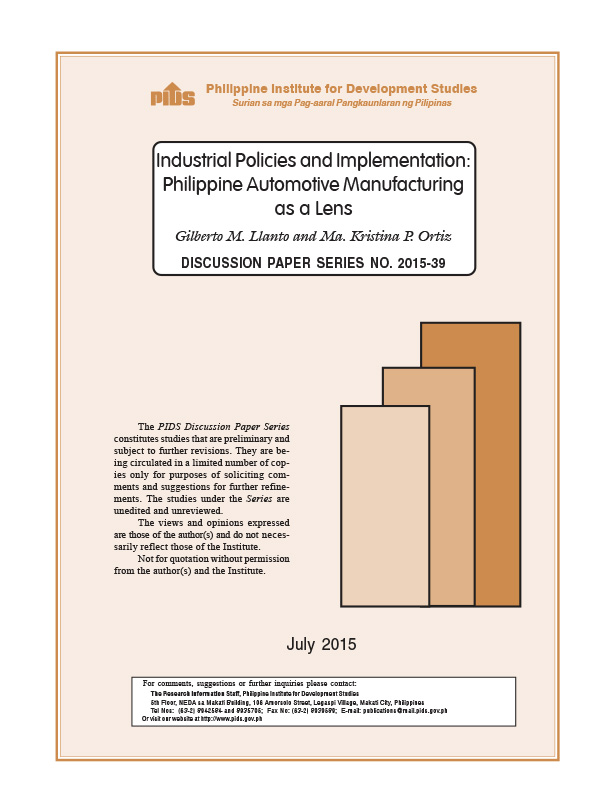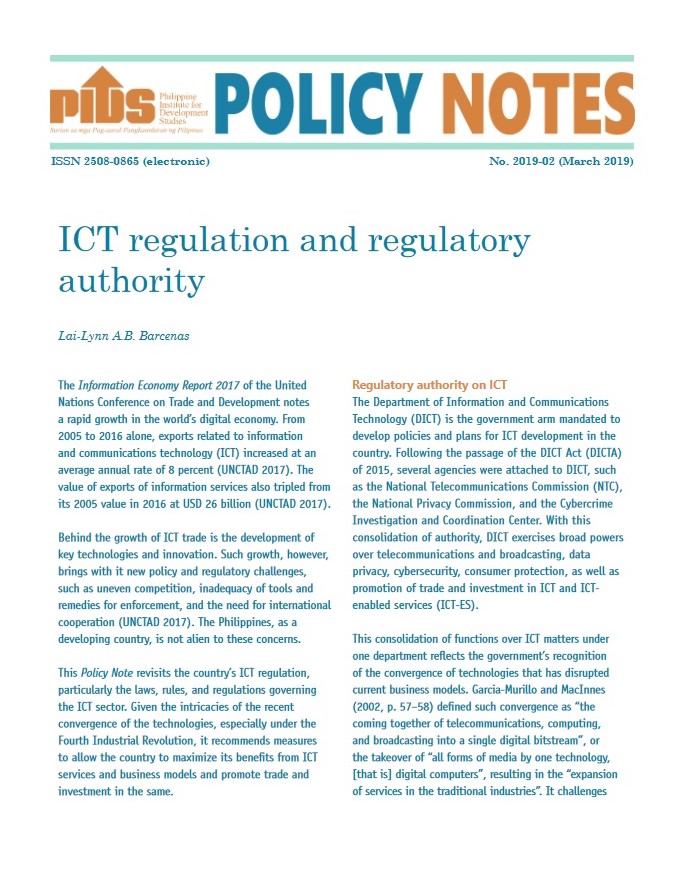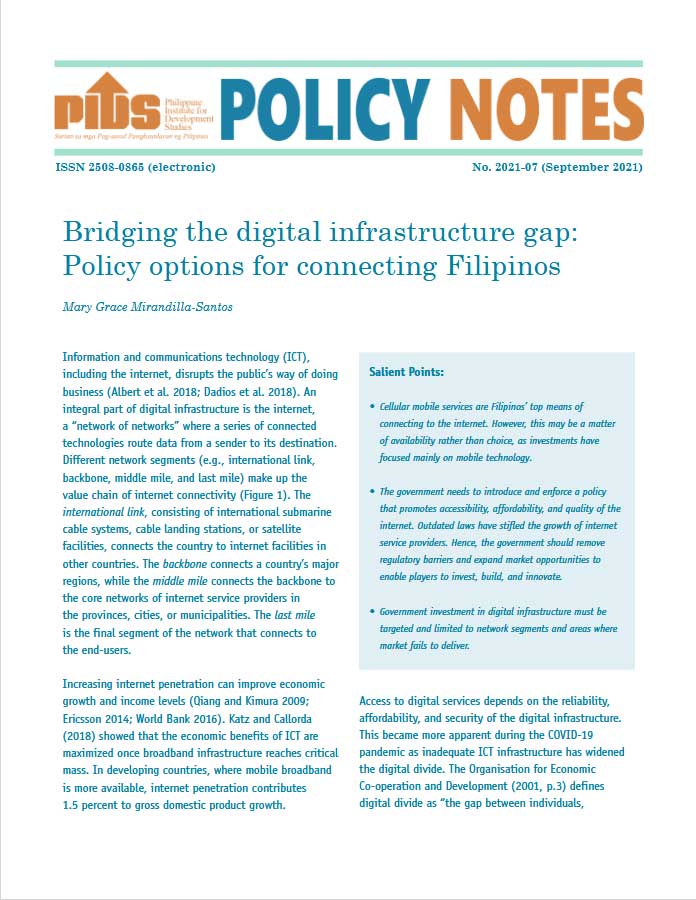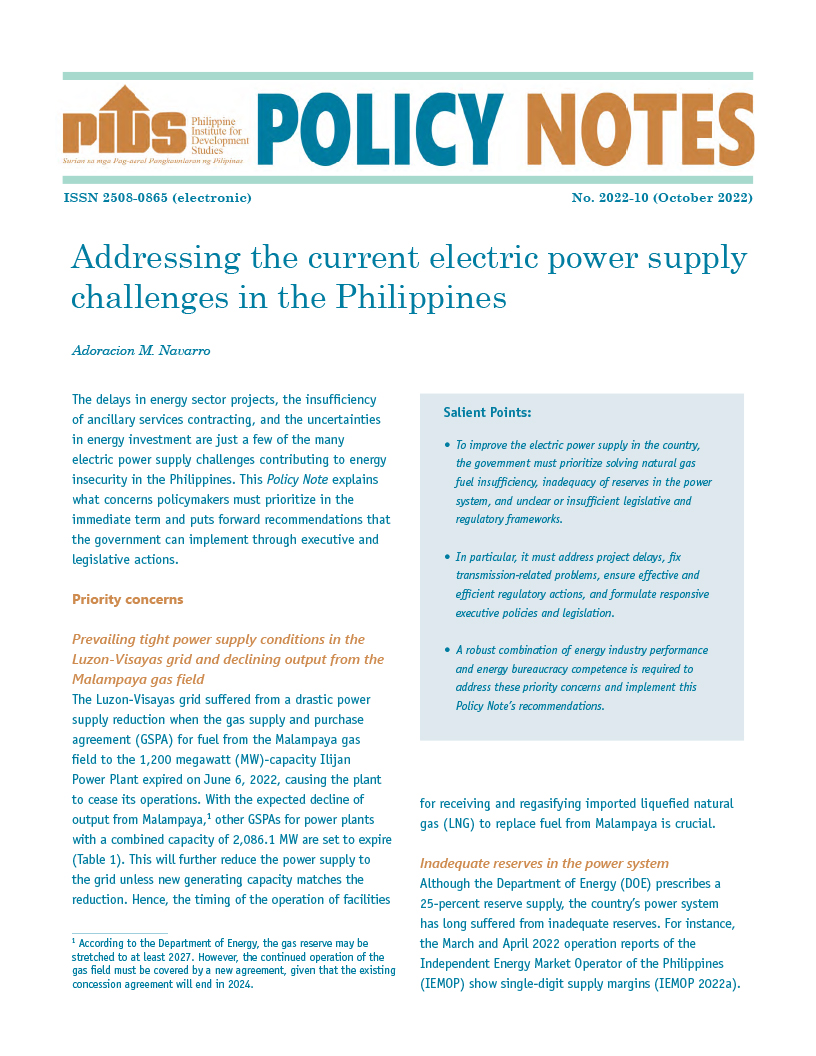Philippine industrial policies such as those bearing on the manufacturing sector are a critical element of the country's development strategy. Manufacturing creates opportunities for higher value addition and extensive employment owing to forward and backward linkages with other sectors of the economy, and linkage to regional production networks, which has become a key factor in the growth of major ASEAN countries. This paper discusses Philippine industrial policy reforms and implementation over the period 1973-2014 through the lens of the automotive manufacturing industry. It discusses the factors that will facilitate or hinder the process of reforms and implementation under the new approach to the development of the automotive manufacturing industry. Information externalities and coordination failure seem to constitute the major challenges to the sector.
Under the Philippine New Industrial Policy, a more nuanced set of targeted interventions is employed to achieve envisaged policy goals. Weak state capacity for implementing the reforms and the lack of political will could stand in the way of successful policy implementation. The recent economic performance of the country builds the case for intensifying the policy reform process. While there are no easy pathways in the reform process, successful implementation of the new industrial policy will also be conditional on the political leadership and bureaucratic capacity across a number of government agencies. Credible leadership and ownership by bureaucrats as well as other stakeholders, while necessary, are not a sufficient condition for the success of reform efforts. Equally important is the buy-in or ownership of those reform efforts by the polity.













